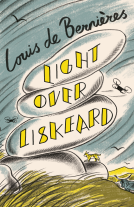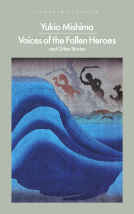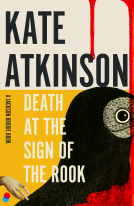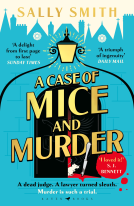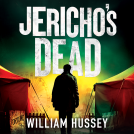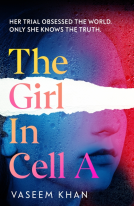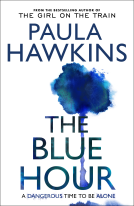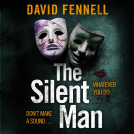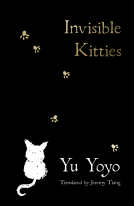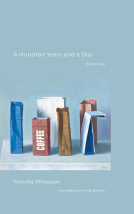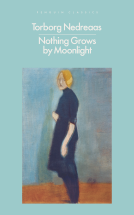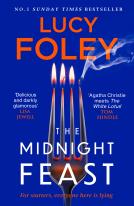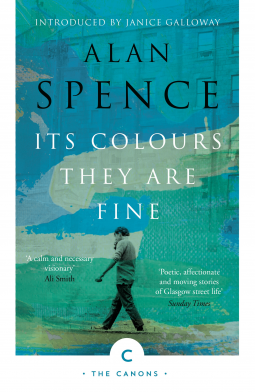
Its Colours They Are Fine
by Alan Spence
This title was previously available on NetGalley and is now archived.
Send NetGalley books directly to your Kindle or Kindle app
1
To read on a Kindle or Kindle app, please add kindle@netgalley.com as an approved email address to receive files in your Amazon account. Click here for step-by-step instructions.
2
Also find your Kindle email address within your Amazon account, and enter it here.
Pub Date 2 Aug 2018 | Archive Date 2 Aug 2018
Canongate Books | Canongate Canons
Talking about this book? Use #ItsColoursTheyAreFine #NetGalley. More hashtag tips!
Description
Available Editions
| EDITION | Paperback |
| ISBN | 9781786892973 |
| PRICE | £9.99 (GBP) |
| PAGES | 272 |
Featured Reviews
 Alan M, Bookseller
Alan M, Bookseller
‘Sometimes it seems the fragments contain the whole; and every moment is eternity, every little thing is infinite. And the moment itself is its own significance, its own meaning.’
I’m generally not a big fan of short stories – I tend to find them insufficient, too lacking in depth, too, well, short. But this collection from Alan Spence, a re-issue of his debut 1977 work, is more than just a series of stories. Each can stand on its own but, as you read through the collection, characters re-appear, phrases echo, images repeat, and the first and last stories round themselves off by revisiting the same family a few years after the first story as the older Aleck remembers a moment from his past.
These stories are a testament to a city and its people, Glasgow in the 1970s and the lives of its ordinary, working-class citizens. Here are moments of childhood fun hanging about with pals, families struggling to put food on the table but living with dignity and community, of family get-togethers (a wedding, Christmas, New Year). Here is a city changing, as the old slums are torn down and its people relocated to high-rise blocks of flats. Some of the dialogue might be a struggle for some non-Scots, but you will get attuned to it. I have to admit to some bias – in that my mother’s family is from Glasgow and it remains one of my favourite cities. And this collection of stories, although certainly rooted in the 1970s with its references and details, still has plenty to say – in its focus on moments in our lives - about now, about how we live, and of how we live with others. They are about ‘all the beautiful sadness of our little lives, the fullness and the transitoriness of it all’. A wonderful, honest and touching collection that deserves to be read or re-read.
 Paromjit H, Reviewer
Paromjit H, Reviewer
An absorbing set of interconnected short stories that gives us a glimpse of Glasgow in the past. It captures life in the tenements, the poverty, the drinking, memory, the sectarianism, and the divisions of the city demonstrated in the two football teams. They speak of hopes, dreams shattered, violence and the unremitting forces of change that sweep through Glasgow, the new immigrants that bring in an understanding of a bigger and wider world beyond the confines of the city, expanding imaginations of locals. Spence writes eloquently, bringing the past back to life with his beautiful descriptions and pin sharp characters, with their accents, and of their time. The eponymous story gives us Billy, an orange man, a proddie through and through, convinced God is a Protestant, the lodge and the showing of the colours on the Orange Walk and Rally. The ingrained sectarianism is entrenched with his unwavering support of Glasgow Rangers FC.
A boy, Aleck, waits for his mother at the washhouse, returns home for Christmas decorations and a tinsel garland that never tarnishes. In some of these coming of age stories, with Aleck, friend Joe and sometime ally Shuggie, we get a picture of childhood, Sunday school, crossing ferries to Partick, finding boxes full of football team jerseys, adventures with bows and arrows and the targetting of gypsies and more. There is the anxiety of change as tenements come to demolished. There is the 'brilliant' time had by The Govan Team and Shuggie as they engage in violence at a dance hall. My favourite stories include The Rain Dance and The Palace. In the Blue, the colour is associated with Rangers FC and for Catholic Maureen, Our Lady. It is the colour of sadness, and at the funeral of a mother, a vision is seen. This is a fine collection of stories, of a particular era, depicting Glaswegian characters and lives with candour and vibrancy. Highly recommended! Many thanks to Canongate for an ARC.
 Sue P, Bookseller
Sue P, Bookseller
These interlinked stories vividly evoke the lives of the inhabitants of Glasgow's slums of the past. Gritty, shocking, touching and raw. The stories feel both universal, and yet deeply embedded in a particular place.
I love modern Glasgow, so it was apposite to read about where today's city has come from.
Readers who liked this book also liked:
Tomoka Shibasaki
General Fiction (Adult), Literary Fiction, Novellas & Short Stories
Torborg Nedreaas
General Fiction (Adult), Nonfiction (Adult), Women's Fiction
